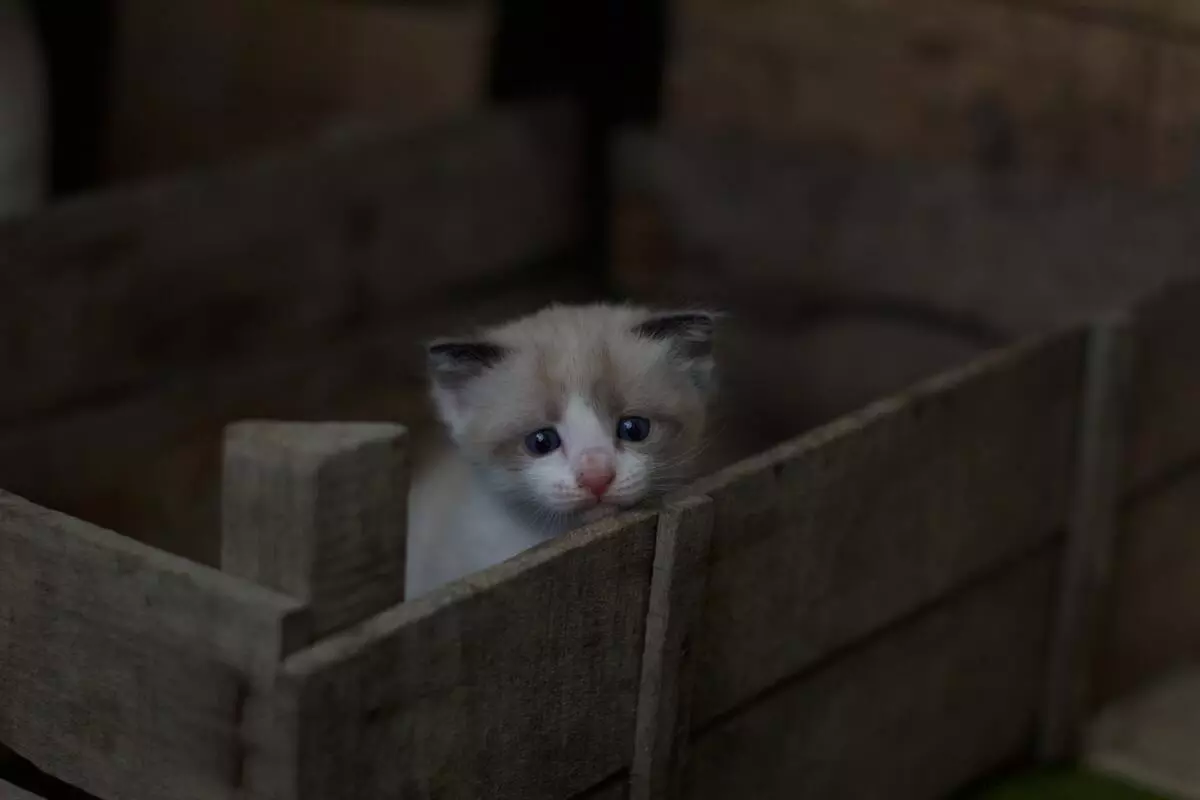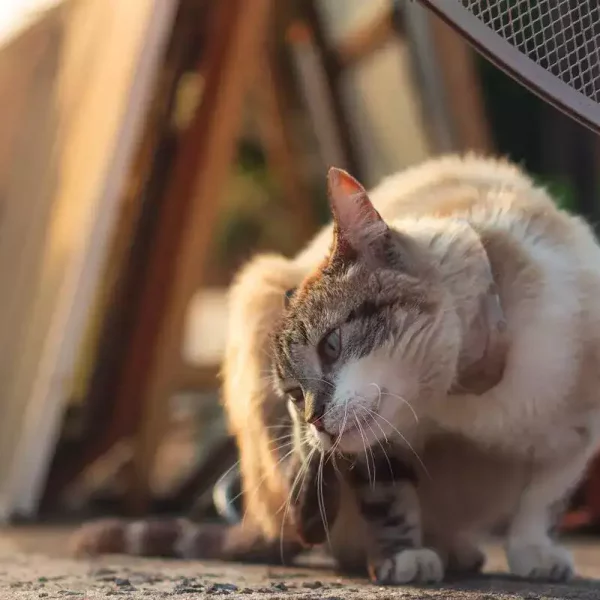If you’re a kitten parent, you’ve likely lost count of the times you’ve seen your kitten shake for seemingly no reason and got concerned. Wonder why this happens? This post will explore all the possible reasons behind your lovely furry friend’s shaking.
So, why do kittens shake anyway? There are many reasons why kittens shake. It may be out of excitement, fear, attention, discomfort, or illness, among many others. In most cases, the shaking isn’t a cause for alarm. But when sickness or pain is involved, you shouldn’t take the shakes lightly.
Want to know all the potential reasons why your feline companion shakes? Keep scrolling to find out. I’ll also tell you more about the illness-related shaking so you’d know when to see a vet visit.
Understanding kitten shaking: 10 possible reasons why your kitten shakes
As a kitten owner, you’ll agree that certain habits we observe from our young feline companions leave us worried and confused — like shaking every now and then.
They do it while sleeping, eating, when you lift them..… basically in the least expected circumstances, making you question why the shaking happens in the first place.
Almost every kitten parent has a “kitten-shaking story.” It’s common in kittens, and not every shake means something’s wrong with your cherished furry pal.
Most times, the shaking is pretty harmless. Let’s explore some of the common reasons why kittens shake:
It’s purely out of excitement
Have you noticed your furry friend shakes during mealtime? Whenever you carry them after coming home from work? When you’re about to take them for a walk? Or while playing?
That, my friend, is an excitement shake.
Sometimes, a kitten may be filled with so much joy and eagerness. They simply can’t contain it.
They might shake as they scarf down their favorite meal, participate in an activity they love, or when you — their human best friend — pick them up.
As long as the shaking lasts briefly and they act like their usual self a few moments later, you have nothing to panic over.
But if the shaking comes with other unwanted behaviors like excitement urination, it’s a good idea to consult a behaviorist to get things under control.
They’re afraid or anxious
Some kittens shake when overcome by fear or anxious thoughts.
Your kitten’s fear comes in many forms. Maybe the sound of fireworks or your vacuum scares them like crazy. Or being picked up by a guest they’ve never met makes them anxious.
If your kitten seems to tremble when a visitor holds them, socialization training can greatly help. They will become more confident around a “touchy” guest.
On the other hand, sound training will help them get used to noises that normally freak them out and make them shake.
If your kitten is in fear, their shake may happen simultaneously with fear-like behaviors such as licking their lips non-stop, pacing, or avoiding eye contact.
And if you’re furry friend isn’t yet comfortable being held up by anyone — including you — they might shake in fear (and display the fear-like behaviors).
In this case, here’s how you can fix the situation:
- Start by making them sit on your lap regularly so they can get used to your gentle hands. Then slowly transition to placing them on your chest while whispering soft praises.
- When they seem calm on your chest, you can proceed with gently lifting them a few inches higher and offering them praises or a treat.
Over time, you will notice they no longer shake out of fear whenever you lift them. Instead, they may shake out of excitement.
They’re having an exciting dream (or nightmares)
Experts say that our four-legged friends dream when sleeping.
If your kitten makes a quick shake while snoozing, it’s likely that the fierce cat next door is chasing them in their sleep. Or that they’re enjoying chasing butterflies in their dream.
Besides the shaking, expect to hear soft whines or leg movements here and there if they’re having a horrifying dream.
It’s a body response to chilly weather
Kittens shiver when there’s chilly weather.
Our young feline pals tend to lose body heat quicker than full-grown cats because of their small bodies. So when it’s cold, your kitten can’t control the shaking since that’s their body’s automatic response to the chilly weather.
The shivers are simply muscles contracting and relaxing rapidly to make your kitten’s body warm up.
And since the shaking alone can’t meet all your kitten’s warmth needs, the whole body trembling will persist until you do something to keep them warm — Like letting them wear a cat sweater.
The attention-seeking shakes
Sometimes, your kitten may shake so that you’d notice them.
Shaking can become their go-to ticket to winning your attention if they realize you often walk up to them whenever they start to tremble.
Even minor reactions like staring at your kitten as they shake can make them believe that shaking is what they need to do to grab your attention.
This type of shaking lasts briefly. Your kitten should still look okay after their shaking stunt.
To shake off the bugs
If your little feline pal feels itchy because of insect bites or external parasites like fleas, they might shake vigorously to get rid of these nasty little bloodsuckers.
Apart from the frequent shakes, your kitten will also exhibit some telltale signs of insect bites and parasite infection — constantly scratching or biting their body, red pimples, and so on.
It’s advisable to speak to your vet if your kitten’s shaking suggests they’re dealing with parasites or a sting.
Trying to dry up (and get dirt off)
After enjoying some time in the pool or after a bath, it’s common for kittens to vigorously shake off the excess water from their body.
Maybe a towel doesn’t get the job done well enough, so your kitten resorts to what they know best — “shake-when-wet.”
This may also happen if they’ve been rolling in dirt and want to remove particles trapped in their coat.
They have discomfort in the ears
If there’s something stuck in your kitten’s ears — like a bit of water after spending time in the pool — you will notice your cat shaking their head more than usual. They will also shake their head regularly if they feel some sort of pain in their ears.
You should speak to your vet if the head-shaking persists for days.
It’s part of their morning routine
Kittens love to shake after waking up, maybe so they’d start their day on the right note. Think of these morning shakes as your kitten’s version of morning stretch.
They suffer from an illness
As I said a while ago, not all kitten-shaking episodes are harmless. Shaking is often one of the major symptoms of certain conditions affecting kittens.
There’s one genetic condition known as shaking kitten syndrome (yes, you read that right) that leads to persistent body shakes, among other symptoms.
Other health problems that can make kittens tremble a lot include:
- Neurological conditions such as cerebellar hypoplasia
- Hypoglycemia –when a kitten has abnormally low blood sugar levels in the blood
- Feline distemper – a contagious (and deadly) viral illness that often attacks unvaccinated kittens
- Poisoning
The surest way to know whether an illness is behind your kitten’s frequent body tremors is to observe their behavior after shaking. Talk to your vet immediately you spot symptoms like :
- Difficulty walking (and losing balance)
- Irregular breathing
- Nasal discharge
- Lethargy
- Appetite loss
- Coughing
- Diarrhea
- Vomiting
Also, if your kitten’s shaking has been mild for a while and then suddenly becomes repetitive (and in great intensity), make sure to see the vet so they can determine the underlying problem.



Leave a Comment